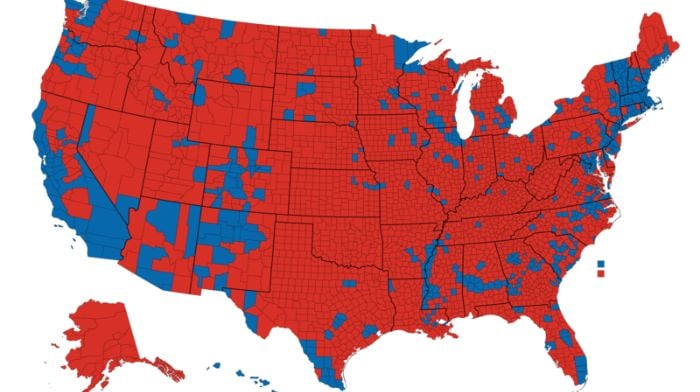By Casey Harper (The Center Square)
A new report ranks all 50 states from best to worst for economic conditions, showing which states have improved, and worsened, in creating an economic climate where businesses want to invest.
The American Legislative Exchange Council released the state analysis, which ranks Utah as the number one state, North Carolina as second, and Arizona as third. Idaho and Oklahoma fill out the top five spots, ranking fourth and fifth, respectively.
RELATED: GOP Speaker McCarthy Will Demand Spending Cuts in Trade for Debt Ceiling Vote
“The proof is in the pudding,” Jonathan Williams, ALEC’s chief economist who co-authored the report, told The Center Square. “Utah was the fastest growing state in the country by population, over 18% population growth in the last decade. So one of the key themes that we see not just in Utah but in so many of the top ten or the top half of states is that states that get it right with policy are getting it right with migration as people continue to vote with their feet. Taxpayers are continuing to vote with their feet against high-tax states and going toward states that offer more economic opportunity and really a better quality of life and a lower cost of life.”
“We’ve been doing this long enough that there are really no accidents and no flukes,” he added.
ALEC created its rankings using 15 metrics, most of them related to state tax environment. The metrics, which are equally rated, are as follows:
- Top Marginal Personal Income Tax Rate
- Top Marginal Corporate Income Tax Rate
- Personal Income Tax Progressivity (change in tax liability per $1,000 of income)
- Property Tax Burden (per $1,000 of personal income)
- Sales Tax Burden (per $1,000 of personal income)
- Remaining Tax Burden (per $1,000 of personal income)
- Estate/Inheritance Tax Levied
- Recently Legislated Tax Changes (2020 & 2021, per $1,000 of personal income)
- Debt Service as a Share of Tax Revenue
- Public Employees Per 10,000 of Population (full-time equivalent)
- State Liability System Survey (tort litigation treatment, judicial impartiality, etc.)
- State Minimum Wage (federal floor is $7.25)
- Average Workers’ Compensation Costs (per $100 of payroll)
- Right-to-Work State? (option to join or support a union)
- Number of Tax Expenditure Limits
At the bottom of the rankings is New York, the worst state by ALEC’s metrics. Vermont is ranked 49th, Minnesota is 48th, and New Jersey is 47th. Illinois comes in at 46th, and California ranks as 45th.
“This isn’t just theory,” Williams said. “These are items that we know both from an academic perspective, these policies that we track…things that we know matter just from an historical perspective but then now in the last 16 years it has been just phenomenal to look at. It’s not just a theory. It actually works in practice.”
For the most part, Republican-led states filled the better parts of the rankings while Democrat-led states fell to the bottom. The top ten states are almost entirely Republican-led, and the bottom ten states are all Democrat-led.
“The states that followed the free market formula of keeping taxes low and keeping regulations limited, empowering workers, empowering taxpayers across the board are the fastest growing states in America,” Williams said.
The full ranking of states, from best to worst by ALEC’s metrics:
- Utah
- North Carolina
- Arizona
- Idaho
- Oklahoma
- Wyoming
- Indiana
- North Dakota
- Florida
- Nevada
- Tennessee
- Georgia
- Texas
- South Dakota
- Arkansas
- Michigan
- Wisconsin
- Virginia
- New Hampshire
- Ohio
- South Carolina
- Mississippi
- Alaska
- Alabama
- Colorado
- Louisiana
- Kentucky
- West Virginia
- Delaware
- Kansas
- Missouri
- Iowa
- Montana
- Washington
- Pennsylvania
- Nebraska
- Massachusetts
- New Mexico
- Connecticut
- Rhode Island
- Maryland
- Hawaii
- Oregon
- Maine
- California
- Illinois
- New Jersey
- Minnesota
- Vermont
- New York
Syndicated with permission from The Center Square.


